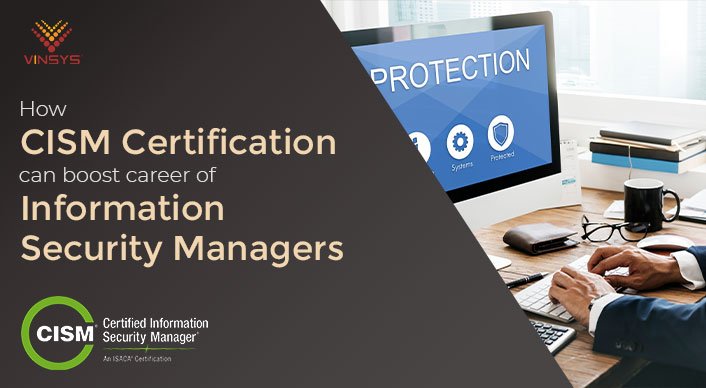Are you an aspiring information security professional considering obtaining the prestigious Certified Information Security Manager (CISM) certification? You might be wondering if it’s possible to get this highly sought-after credential without any prior experience. This blog post is here to help! We’ll dive into what CISM is, its requirements, and how you can navigate your way into the field of information security. So let’s unravel the mystery behind CISM certification experience requirements and set you on a path towards a successful career in information security management.
What is CISM?
CISM, or Certified Information Security Manager, is a globally recognized certification offered by ISACA (Information Systems Audit and Control Association). This prestigious credential is designed for professionals who manage, design, oversee, and assess an enterprise’s information security. It validates the candidate’s expertise in developing and managing an effective information security program.
The CISM certification focuses on four key domains: Information Security Governance, Information Risk Management and Compliance, Information Security Program Development and Management, as well as Incident Management and Response. By covering these essential areas of knowledge, it ensures that certified professionals possess a comprehensive understanding of information security management best practices.
Earning your CISM demonstrates commitment to excellence within the industry. It not only bolsters your career prospects but also enhances your credibility among peers. Furthermore, it can lead to increased job opportunities with higher salaries compared to non-certified counterparts. Consequently, obtaining this highly sought-after certification will undoubtedly boost your professional growth in the field of information security management.
The requirements for CISM certification
To earn the Certified Information Security Manager (CISM) certification, one must meet specific requirements set forth by ISACA. These requirements aim to ensure that certified individuals have a requisite level of knowledge and experience in information security management.
The first requirement is passing the CISM exam, which consists of 150 multiple-choice questions covering four domains: Information Security Governance, Risk Management and Compliance, Information Security Program Development and Management, and Information Security Incident Management. The exam is rigorous and requires thorough preparation.
In addition to passing the exam, candidates must also possess at least five years of professional experience in information security management roles. This experience must be within ten years preceding the application date or within five years after passing the CISM exam.useful exam reference
Alternatively, those who do not yet have five years of experience can still obtain provisional certification for an initial period of up to five years while working towards meeting this requirement. This option provides an opportunity for entry-level professionals to gain industry recognition as they work towards fulfilling all necessary prerequisites.
Earning a CISM certification demonstrates a high level of expertise in information security management and reflects one’s commitment to ongoing professional development in this critical field.
How to get started in the field of information security
Getting started in the field of information security can be overwhelming, but with dedication and passion for technology, it can become a fulfilling career path. One way to start is by understanding the foundational concepts of cybersecurity such as cryptography, network security, and ethical hacking.
A degree in computer science or IT-related fields could also provide a solid background for aspiring professionals. However, obtaining certifications like CompTIA Security+ or CEH (Certified Ethical Hacker) would demonstrate an individual’s proficiency in handling security issues.
Another approach is to gain hands-on experience through internships or entry-level jobs that involve working closely with experienced professionals who have been in the industry for many years. This exposure provides an opportunity to learn practical skills while building professional relationships that may lead to future job opportunities.
Staying up-to-date on current trends and emerging threats within the industry is crucial. Following news sources related to information security such as blogs and forums will help develop knowledge about new technologies and strategies used by organizations worldwide.
Getting started on a career in information security requires commitment, continuous learning, hands-on experience and staying informed about current events within this ever-changing field.
Conclusion
In the journey to obtaining a CISM certification, it is evident that meeting the experience requirements plays a crucial role. While it may be challenging for those without prior experience in information security, there are alternative routes available. By pursuing relevant education and certifications like Security+, CISSP or CEH, gaining practical work exposure through internships or entry-level jobs, and continuously updating your knowledge in this fast-paced field, you can create a solid foundation for your career.
Remember that achieving the CISM certification not only validates your expertise but also opens numerous doors for professional growth within the information security domain. So don’t let the lack of experience deter you from striving towards this prestigious credential; instead, view it as an opportunity to learn and grow on both personal and professional levels. With determination and perseverance, nothing is impossible!
